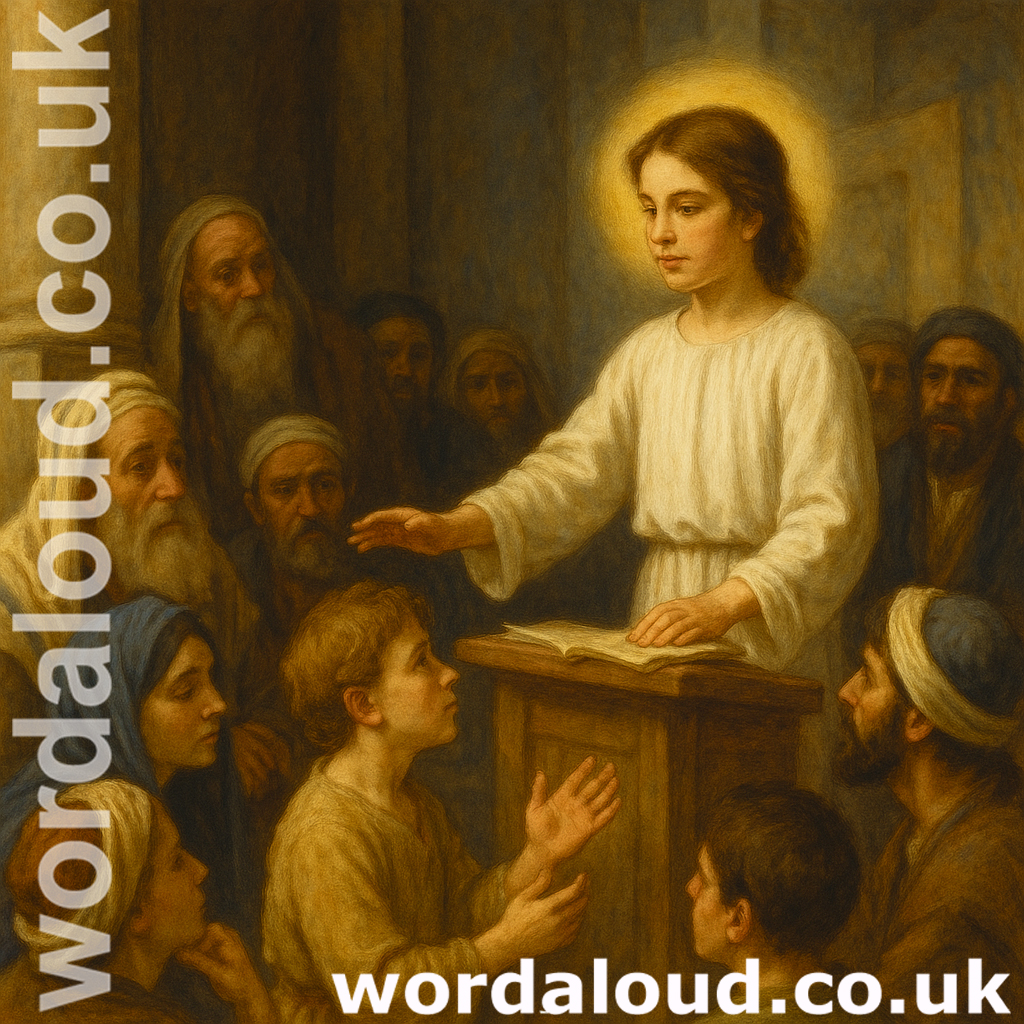Fern Hill by Dylan Thomas | A Poem of Memory, Time, and the Loss of Innocence
Dylan Thomas’s Fern Hill is a charged and evocative meditation on childhood. The poem expresses such joy and wonder associated with youth, only to reveal—gradually and with emotion—the passage of time. Fern Hill is nostalgic recollection of and elegy for innocence and inevitable transition from youthful bliss to sobering awareness of mortality, which nonetheless affirms immortality of the childhood experience, which continues to sing through the very act of reading the poem.
The poem draws on Christian themes, particularly in Edenic imagery of paradise and the Fall from Grace. The poet’s childhood is initially presented as an idyllic state, akin to Eden before the Fall, but this illusion of timelessness is ultimately shattered as time emerges as a silent, inescapable force.
Edenic Childhood And The Fall From Innocence
The poem expresses biblical imagery of Eden before the Fall. The poet’s childhood is depicted as a time of pure, untroubled happiness, where he exists in harmony with nature:
Now as I was young and easy under the apple boughs / About the lilting house and happy as the grass was green.
Reference to apple boughs might suggest the Tree of Knowledge, with an idea that childhood is a prelapsarian state—an existence untouched by the burdens of time and mortality. The farm at Fern Hill is the poet’s paradise, where he roams freely, untainted by the awareness of life’s inevitable progression.
However, just as Eden was not meant to last, neither is childhood. The Fall in Fern Hill is not brought about by sin, but by the passage of time itself. Scholar Walford Davies observes that Fern Hill “enacts the inevitable exile from the innocence of youth, where time, once unnoticed, asserts itself as a governing force” (Dylan Thomas, 1986).
As the poem progresses, we witness this paradise fading—not in an abrupt, catastrophic way, but in a slow, creeping realization. Imagery shifts subtly from joyous freedom to an awareness of limitation, culminating in devastating understanding that time has always been present, even in youth’s most radiant moments.

The Role Of Time: A Benevolent Guardian Turned Oppressor
Time is the central force in Fern Hill, shaping the poet’s journey from innocence to awareness. However, Dylan Thomas does not present time in a straightforward manner. Rather, time is first depicted as a benevolent, almost godlike presence that allows the poet to revel in his youth:
Time let me hail and climb / Golden in the heydays of his eyes.
At first, time appears permissive, allowing the poet to experience joys of childhood with no apparent consequence. The phrase Time let me suggests that time is a generous force, bestowing a golden, untroubled existence upon the child. This illusion of boundless time is what makes childhood feel infinite—yet the very phrasing hints at an underlying deception.
As the poem progresses, time’s true nature is revealed. It is not a passive observer but an inescapable force, one that has always been present, unnoticed but inexorably shaping the speaker’s destiny. By the final stanza, time has transitioned from a silent companion to a captor:
Time held me green and dying / Though I sang in my chains like the sea.
The phrase green and dying is profoundly paradoxical, encapsulating the realization that even in youth, the seeds of mortality are already sown. The joyous child of the opening stanzas was never truly free—he was always held by time, even if he did not realize it.
The image of chains in the final line suggests the inescapability of time—the speaker now understands that life is bound by its limits. And yet there is defiance and resilience. To sing in one’s chains is to acknowledge the constraints of time while still affirming the beauty of existence, much as religious faith offers meaning in the face of suffering.
Christian Influences: Light, Creation, And Redemption
Christian imagery permeates Fern Hill, reinforcing its themes of paradise lost, time as a divine force, and eventual redemption.
Biblical Allusions To Light And Creation
Throughout the poem, Thomas uses imagery of light to symbolize the transition from innocence to experience. The following lines echo the Genesis creation story:
And the sun grew round that very day / So it must have been after the birth of the simple light.
The phrase birth of the simple light recalls Genesis 1:3 (“Let there be light”), suggesting that childhood is a new creation, a sacred, untainted existence. Just as God’s light illuminated the world at the beginning of time, the speaker’s childhood is full of radiance and purity. However, this light, like Eden, is not eternal—it must fade as time advances.
Redemption In Memory And Poetry
Despite the Fall from childhood, Fern Hill does not end in despair. The final line—
Though I sang in my chains like the sea.
—suggests a form of spiritual acceptance or redemption. The sea, a vast and eternal force, continues to move despite its natural boundaries. The phrase sang in my chains evokes biblical themes of endurance and faith, particularly the Psalms, where figures sing to God even in suffering (“Sing unto the Lord a new song” – Psalm 96:1).
Rather than surrendering to sorrow, the poet finds meaning through memory and poetry. In transforming his lost childhood into verse, he achieves a form of immortality, much like religious faith seeks to transcend the limitations of earthly existence.
A Poem Of Eden, Time, And Memory
Dylan Thomas presents youth as a golden paradise, filled with light and freedom, but ultimately subject to the inescapable forces of time. The poem’s structure mirrors this journey: it begins in joyous fluidity, moves through gradual awareness, and ends in a sombre but transcendent realization.
Through Christian imagery, Thomas frames childhood as an Edenic state, inevitably lost but containing such incredible meaning. Time, which initially appears merciful, is revealed as both the giver and the taker, allowing the poet to experience joy before imposing its inevitable constraints.
Yet, in chains, the poet sings. This act of defiance is so profoundly moving—the poem no mere lament for lost youth, but testament to enduring power of memory, poetry, and the human spirit.








